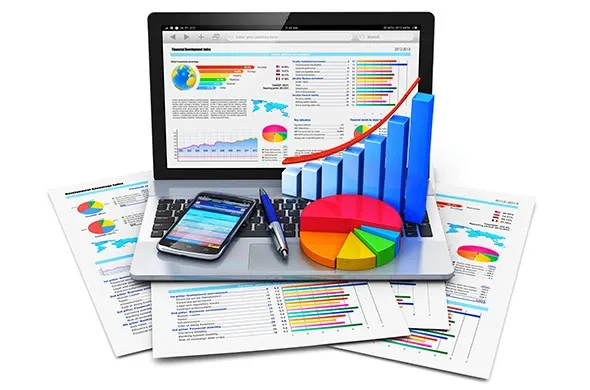Worldwide IT Spending to Grow Eight Percent in 2024
Worldwide IT spending is expected to total $5.06 trillion in 2024, an increase of 8% from 2023, according to the latest forecast by Gartner.

Worldwide PC shipments totaled 61.7 million units in the first quarter of 2018, a 1.4 percent decline from the first quarter of 2017, according to preliminary results by Gartner. The PC market experienced a 14th consecutive quarter of decline, dating back to the second quarter of 2012.
Asia/Pacific and the U.S. experienced declining shipments, while other regions saw some minimal growth, but it was not enough to drive overall growth for the PC industry. In the first quarter of 2018, PC shipments in Asia/Pacific declined 3.9 percent compared with the same period last year, while shipments in the U.S. decreased 2.9 percent.
The top three vendors, HP, Lenovo and Dell, accounted for 56.9 percent of global PC shipments in the first quarter of 2018, compared with 54.5 percent of shipments in the first quarter of 2017. Dell experienced the strongest growth rate among the top six vendors worldwide, as its shipments increased 6.5 percent.
Preliminary PC Unit Shipment Estimates for 1Q18 (Thousands of Units)
| 1Q18 Shipments | 1Q18 Market Share (%) | 1Q17 Shipments | 1Q17 Market Share (%) | 1Q18-1Q17 Growth (%) |
HP | 12,856 | 20.8 | 12,505 | 20.0 | 2.8 |
Lenovo | 12,346 | 20.0 | 12,305 | 19.7 | 0.3 |
Dell | 9,883 | 16.0 | 9,277 | 14.8 | 6.5 |
Apple | 4,264 | 6.9 | 4,199 | 6.7 | 1.5 |
Asus | 3,900 | 6.3 | 4,458 | 7.1 | -12.5 |
Acer | 3,828 | 6.2 | 4,189 | 6.7 | -8.6 |
Others | 14,609 | 23.7 | 15,637 | 25.0 | 6.6 |
Total | 61,686 | 100.0 | 62,569 | 100.0 | -1.4 |
HP 's worldwide PC shipments increased 2.8 percent in the first quarter of 2018 versus the same period last year. In EMEA, HP Inc. recorded double-digit growth in both desktop and mobile PCs. This was contrasted with a small decline in other regions. HP Inc. was adversely impacted by declining demand in the U.S., which generally accounts for one-third of its total shipments.
Lenovo's global PC shipments remained flat in the first quarter of 2018. Lenovo achieved 6 percent growth in EMEA and double-digit shipment growth in Latin America. However, in Asia/Pacific (its largest market), PC shipments declined 4 percent.
After record holiday sales for consumer and gaming products in the fourth quarter of 2017, Dell continued to perform well in the first quarter of 2018. With double-digit shipment increases in EMEA, North America and Latin America, Dell grew in all regions except Asia/Pacific. Desktop and mobile PCs grew in equal measures, showing Dell's strength in the business segment.
The average selling prices (ASPs) of PCs continue to rise. Acknowledging deceleration in the smartphone market, and uncertainty in PC replacement demand, component companies remain cautious about expanding their production capabilities. Therefore, persistent component shortages and a rising bill of materials continue to create an environment conductive to higher prices.
In the U.S., PC shipments totaled 11.8 million units in the first quarter of 2018, a 2.9 percent decrease from the first quarter of 2017. Dell moved into the No. 1 position in the U.S. based on shipments, as its market share increased to 29.1 percent. HP moved into the No. 2 position as its shipments declined 4.8 percent, and its market share totaled 28.4 percent in the first quarter of 2018.
PC shipments in EMEA totaled 18.6 million units in the first quarter of 2018, a 1.7 percent increase year over year. Enterprise shipments increased as many Windows 10 projects that were put on hold in 2017 began to be implemented. The fast approach of the compliance deadline for the General Data Protection Regulation (GDPR) in Europe, as well as earlier reports of cybersecurity breaches, made security a strong priority in the hardware refresh cycle among enterprises.
PC shipments in Asia/Pacific totaled 21.9 million units in the first quarter of 2018, a 3.9 percent decline from the first quarter of 2017. As previously mentioned, the PC market in China drove the decline in Asia/Pacific. Consumer demand was weak as most buyers already took advantage of the aggressive promotions offered in the fourth quarter of 2017.